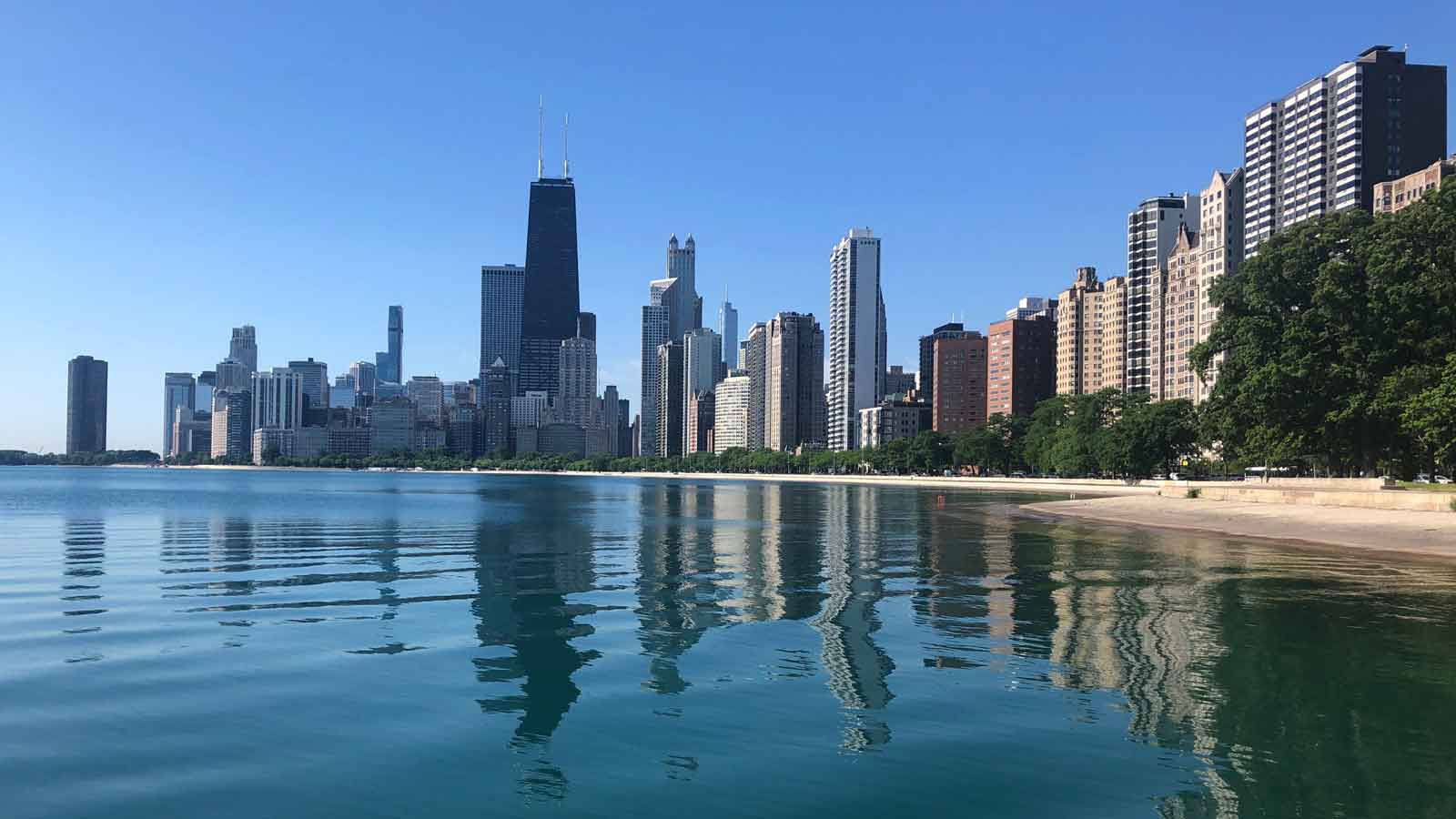
CHICAGO, ILLINOIS – AUGUST 02: Former Illinois governor and convicted felon Rod Blagojevich speaks to the press outside of the Dirksen Federal Courthouse on August 02, 2021 in Chicago, Illinois. Blagojevich was at the courthouse to file a lawsuit, claiming the Illinois General Assembly violated his civil rights by removing him from office and then prohibiting him from holding any future elective office in the state. (Photo by Scott Olson/Getty Images)
Some high-profile corruption cases in Illinois, including those involving former Gov. Rod Blagojevich and former House Speaker Michael Madigan, could be impacted by a Supreme Court ruling narrowing the scope of federal corruption laws used to convict an Indiana mayor, legal experts say.
That ruling, handed down on Wednesday, overturned the bribery conviction of former Portage Mayor James Snyder, who was convicted of taking $13,000 from a trucking company after he steered more than $1 million in contracts to the business.
Snyder argued that the payments had been related to consulting work he had performed for the company, and his attorneys argued that the lack of an explicit quid pro quo arrangement should lead to the conviction being overturned.
The court’s six conservative justices agreed with the latter interpretation, with Justice Brett Kavanaugh ruling that the statute used to convict Snyder was interpreted too broadly by federal prosecutors.
“The government’s interpretation of the statute would create traps for unwary state and local officials,” Justice Brett Kavanaugh said in the ruling.
The court specifically ruled that a “gratuity or reward” could be unethical or even illegal under other laws, but that it didn’t violate the law Snyder was charged with breaking.
Justice Ketanji Brown Jackson dissented, saying that Snyder’s arguments were an “absurd” reading of the law that “only today’s Court could love.”
Local
In Illinois, the ruling could potentially impact Blagojevich, whose attorneys are now exploring legal options to potentially set aside his 2009 conviction. The former governor was convicted in a scheme in which he attempted to sell the U.S. Senate seat vacated by former President Barack Obama.
Blagojevich has maintained his innocence, and had his sentence commuted by former President Donald Trump in 2020.
Feeling out of the loop? We'll catch you up on the Chicago news you need to know. Sign up for the weekly Chicago Catch-Up newsletter.
“Governor Blagojevich spent 8 years in prison for practicing politics,” his attorneys said in a statement. “He broke no law and took no gratuities. He refused to give in to the corrupt prosecution brought against him. It was routine political talk and lawful requests for campaign contributions made by third parties without an quid pro quo. The prosecutors won convictions in his case by using a standard the U.S. Supreme Court expressly said was not the law by turning legal requests for political donations into fake crimes.”
Legal experts also say there could be a new trial for the so-called “ComEd Four,” and could mean significant changes to the case against Madigan.
Gabrielle Sansonetti, the attorney for former ComEd consultant Jay Doherty, says she anticipates a new trial in the case.
“I do think the case is going to be retried,” she said.
Scott Lassar, who represents former ComEd CEO Anne Pramaggiore, echoed similar sentiments.
“The Supreme Court has made it clear what Anne Pramaggiore was charged with is not a crime,” he said. “(If it’s retried), it would be very hard for them to prevail, as they would have to show a quid pro quo.”
Pramaggiore and Doherty were both convicted in a wide-ranging scheme to bribe Madigan, arranging more than $1 million in payments to associates in efforts to obtain favorable legislation for ComEd.
The quartet’s sentencing has been delayed pending the outcome of the Supreme Court case, but a retrial could be in the works based on that ruling.
Patrick Collins, a defense attorney and legal expert, says the quid pro quo element will make it hard for the government to maintain the conviction.
“The government argued very strenuously that a quid pro quo, this for that, was not required, but the Snyder court is basically saying ‘yes, it’s required,’” he said.
As for Madigan, whose case was delayed because of the Supreme Court case, his trial could also be impacted.
“I think the government will say ‘judge, can we fix this? We won’t argue gratuities, we will only argue quid pro quo, so we will honor the court’s ruling in Snyder,” Collins said.
Madigan was not charged in the “ComEd Four” case, but faces trial on charges of racketeering, bribery and other crimes related to his time as speaker.



